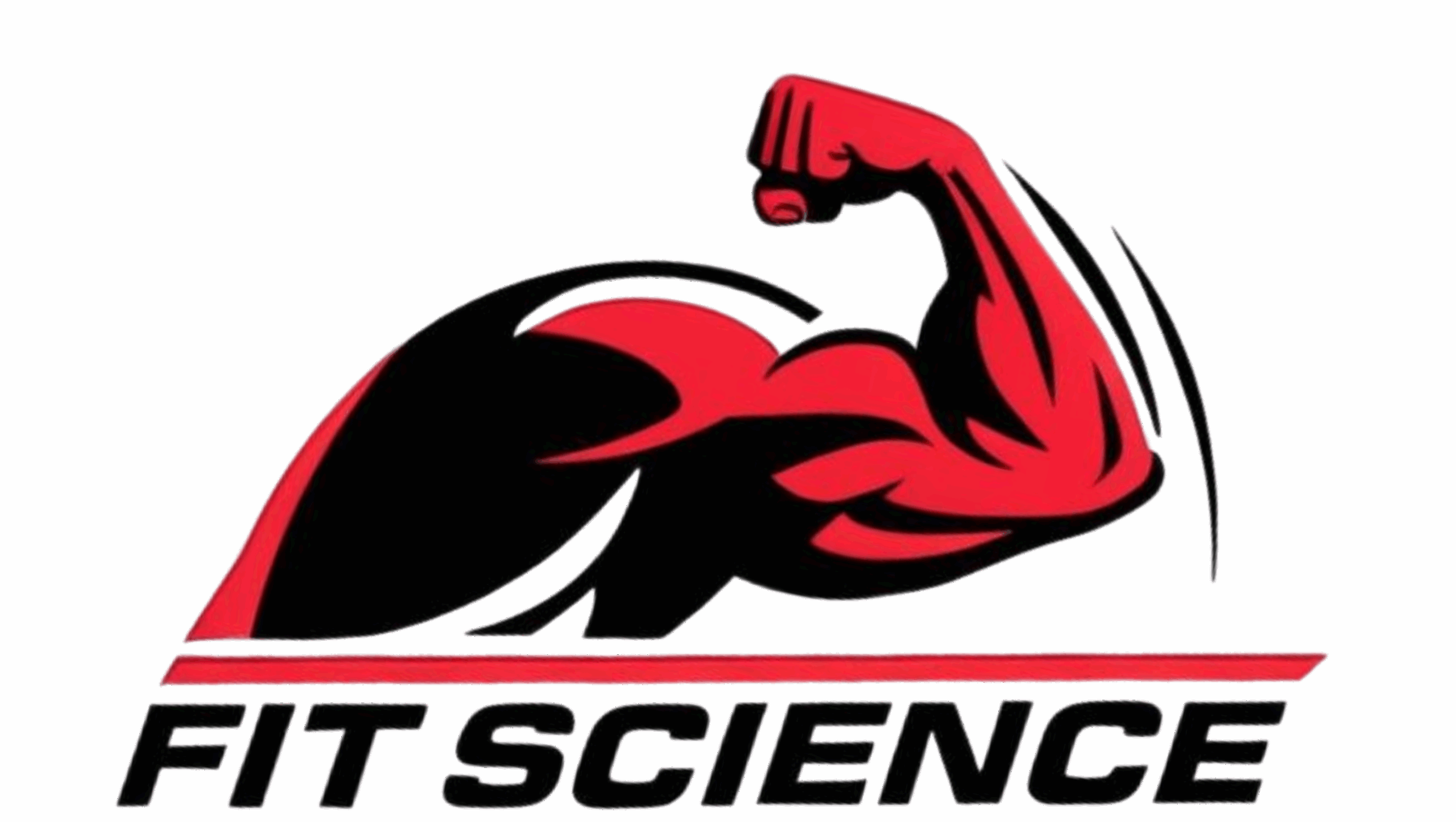Debunking Fasting Myths in Bodybuilding
Bodybuilders love new hacks for fat loss and muscle retention, and intermittent fasting (IF) has been one of the hottest trends. Social media is full of claims that skipping breakfast or “fasting” windows revs up metabolism, torches fat, and even spares muscle better than any other diet. But when we look at the science, these are largely fitness myths. In reality, total calorie intake over time – not the clock on your meals – drives fat loss and muscle preservation. Countless clinical trials and meta-analyses show that as long as your macros and calories are matched, fasting vs. non-fasting plans produce nearly identical results.
For bodybuilders, this means meal frequency or timing alone doesn’t create a “metabolic advantage.” What matters is energy balance: if you burn more calories than you eat, you lose fat; if you eat more, you gain weight. Studies consistently find no inherent fat-loss boost from fasting beyond what you get from a calorie deficit. Likewise, muscle maintenance comes down to adequate protein, resistance training, and managing overall intake – not whether you ate within a six-hour window or three meals a day.
Energy Balance: Fasting vs. Caloric Control
At its core, body composition changes depend on energy in vs. energy out. Fasting proponents often claim skipping meals “revs up metabolism” or uniquely shifts hormones. But high-quality evidence finds no magic metabolic boost. In fact, one large meta-analysis of 24 randomized trials (nearly 1,800 people) showed that weight loss was virtually identical between fasting regimens and continuous calorie restriction (essentially zero difference; 0.26 kg on average, p≈0.37). In other words, people on intermittent fasting diets lost the same weight as those on traditional diets, when calories were matched.
Similarly, a systematic review found that intermittent energy restriction (at least one fast day per week) produced body-weight loss equal to continuous dieting, with only a trivial extra drop in fasting insulin on two-day-per-week fast regimens. This insulin effect was statistically significant, but its practical importance is unclear. Crucially, body fat loss followed the same pattern: IF had no superior effect on fat-burning once energy deficit was accounted for.
Even in resistance-trained scenarios, fasting adds no clear edge. In a 12-week trial combining weight training with either a 5:2 fasting diet (two low-cal days each week) or steady daily dieting, both groups saw nearly identical body composition changes. Lean body mass rose by about +3.7% while total weight fell ~4.6% and body fat ~24% – with no significant differences between fasting vs. continuous dieting. Strength, muscle thickness, and quality improved similarly. The only minor difference: the continuous-diet group had a slightly larger increase in muscle cross-sectional area. Essentially, fasting did not spare extra muscle or cause extra fat loss beyond what the calorie deficit achieved.
In fact, some evidence suggests non-fasting diets might even preserve muscle slightly better. A major meta-analysis in overweight/obese adults reported that “regular intermittent dieting decreased lean mass compared to continuous dieting” – about 0.86 kg more lean loss on fasting-style diets. It concluded that lean mass was better preserved with continuous calorie restriction. This countered earlier hype that fasting could protect muscle; instead it implies any advantage is subtle or nonexistent, and adherence likely drives results more than timing tricks.
A closer look in studies also reveals the obvious trade-off: the bigger the weight loss, the harder it is to gain or keep muscle. One study showed a clear correlation across participants: as weight loss increased, gains in lean body mass decreased (r=+0.63). Put simply, when you really push deficits, you tend to lose more muscle or gain less even if you train. That holds true whether you’re fasting or eating frequent meals; it’s just math and biology. Even the fasting group in that study eventually saw this effect – though oddly, nearly everyone in the IF group gained some lean tissue regardless of how much weight they lost. In practice, however, you don’t want to rely on one trial’s quirk – the consensus remains that maintaining muscle on a diet depends on protein intake and training, not on skipping breakfast.
Muscle Preservation and Performance
Muscle gain or retention hinges on protein intake, resistance training stimulus, and overall calories, not on the timing of meals. A common bodybuilding claim is that fasting boosts muscle-sparing hormones like growth hormone (GH) or that it shuts off muscle breakdown. But the evidence is mixed: fasting does spike GH, true, but it also tends to lower anabolic signals like insulin-like growth factor 1 (IGF-1) and testosterone if calories are restricted over time. One year-long trial of time-restricted eating (eating in an 8-hour window daily) with resistance training actually found lower IGF-1 and testosterone vs. a normal diet group, alongside the expected fat loss. Those hormonal changes can’t magically create more muscle; if anything, they reflect the body adapting to lower energy intake.
Importantly, muscle protein synthesis (MPS) – the process of building new muscle – does not collapse during fasting if protein is sufficient. In a controlled trial, participants doing alternate-day fasting with the same total calories and protein as a non-fasting group showed no drop in muscle protein synthesis rates during the fast days. In other words, short-term fasting didn’t blunt the body’s ability to build/maintain muscle when protein was equated. The caveat? Protein was carefully matched in that study. In a bodybuilding context, if you skip meals but don’t compensate with enough protein later, you’ll lose out.
To maximize muscle protein synthesis, studies suggest distributing protein evenly across 3–5 meals. Expert consensus indicates aiming for about 0.4 g/kg of protein per meal over at least four feedings each day to hit ~1.6 g/kg/day total for building muscle. For a 90 kg lifter, that’s roughly 36 g protein per meal, four times a day. If you do IF and only eat twice daily, you’d need around 70+ g of protein per meal – more than the body can optimally use at once. Excess amino acids would be oxidized rather than further elevating MPS. In practice, this means extreme fasting schedules can make it hard to hit both high protein totals and ideal muscle-building “meals”. Shorter fasts or skipping just breakfast usually isn’t an issue, but squeezing all your nutrition into a tiny window forces trade-offs between volume and frequency.
Performance in the gym can also suffer on a fast. While some bodybuilders adapt to training fasted, many find workouts harder without pre-eating. If training intensity drops, you burn fewer calories and stimulate muscle less. Over time, a slight chronic energy deficit plus weakened workouts could mean less fat loss and muscle gain. The science is clear: energy availability controls performance. In most studies, fasted athletes report higher perceived effort and lower training quality than when fed. In short, if fasting makes you swing your energy lower, it likely lowers training intensity, which indirectly hurts body comp goals.
Hormones, Metabolism, and Nutrient Timing
A lot of fasting lore centers on hormones: insulin, cortisol, testosterone, and so on. Yes, fasting lowers insulin levels and increases fat mobilization acutely, but in the long run insulin’s net effect on fat loss is governed by total carbs/calories, not by meal timing. Insulin does “block” fat release short-term, but during a 24-hour cycle a calorie deficit still dictates how much fat you ultimately burn. Similarly, fasting raises cortisol and adrenaline (stress hormones) while you skip food; that can mobilize fuel but can also impair performance or even lead to insulin resistance if chronic.
Metabolic rate myths are rampant too. It’s true that very short fasts (under 24 hours) might slightly raise norepinephrine and temporarily boost calorie burn, but longer-term studies show no metabolic “advantage” to IF when calories match. Metabolism slows with weight loss regardless of schedule. One meta-analysis noted some reduction in fasting insulin on twice-weekly fasting, but no other metabolic perks beyond what you’d get from any diet that cuts calories. In the end, basal metabolic adaptation is driven by the energy gap and body weight change, not by whether you ate 3 meals or 1. You won’t outsmart your energy balance.
Nutrient timing myths abound too. The idea of an “anabolic window” right after training is often overstated – if you hit your protein targets throughout the day, your gains won’t vanish because you trained fasted. Research indicates muscle can use amino acids for hours after a workout, so you can eat later without losing all growth signal. However, waiting too long (8+ hours) might blunt your peak MPS. For most lifters, a pragmatic approach is: eat protein shortly before or after training if possible, but don’t panic. Consistency in calories/protein over days is far more crucial than exact timing. In one narrative review, even though different IF regimens did cause shifts in body composition and metabolism, the authors emphasized that weight loss effectiveness was “comparable” to daily calorie restriction. They cautioned that research is still evolving, but so far IF offers an alternate way to adhere – not a magic metabolic rewrite.
Psychological Impact: Binge/Restrict Cycles
Beyond physiology, diet patterns can affect the mind. Intermittent fasting appeals to some lifters as a structured tool, but it can backfire in others. Severe restriction on fast days may trigger overeating on feed days. In fact, research suggests a notable risk of disordered eating behaviors with IF, especially in younger lifters. A large survey of teens and young adults found that those who practiced IF were significantly more likely to report binge eating and other unhealthy behaviors – particularly women. Adolescents doing IF had a “substantial” increased risk of eating disorder symptoms. If you’re prone to “all-or-nothing” dieting, fasting windows can set up a guilt-binge loop.
In bodybuilding circles where cheat meals are glamorized, the pattern may be even more pronounced: “I will fast clean all week, then go berserk on Sunday.” This feast-or-famine mentality often harms body composition and psychology. Instead of steady progress, it creates yo-yo cycling. Moreover, fasting can intensify food preoccupation. In one study with adults on a short IF trial, researchers noted increases in food cravings and binge tendencies even after the trial ended. The bottom line: fasting can work but it’s a tool, not a cure-all. For someone with a history of dieting struggles, it may add stress. A measured, consistent calorie deficit – whether through meal skipping or not – is generally easier to sustain without psychological strain.
Practical Bodybuilding Considerations
Bodybuilders often choose diets based on what fits their lifestyle and mindset. Intermittent fasting can be one tool – for instance, if skipping breakfast helps you avoid mindless snacking and keeps calories low, it can help some lifters stick to a calorie deficit. It can also simplify meal prep (fewer meals to cook). But it’s not inherently more effective. If fasting leads you to undereat protein or underperform in the gym, the trade-offs hurt your progress.
The key bodybuilder takeaways are clear: Calories in, calories out is king. If a fasting schedule helps you hit your calorie deficit more easily, fine – but expect identical fat loss as a non-fasting diet with the same calories. Don’t rely on fasting to “burn fat faster” or “spare muscle” on its own. To preserve and build muscle, focus on total protein (about 1.6–2.2 g/kg/day), train intensely, and avoid excessive deficits. Spread that protein over enough meals – ideally 3–5 per day – so each feeding sufficiently spikes MPS (around 0.4 g/kg per meal is often recommended). If you only eat 2 meals, you may need huge protein doses that exceed what muscle-building enzymes can use at once, wasting amino acids.
Likewise, nutrition around workouts matters for performance. If you feel better training on a full stomach and can lift heavier or do more volume, it might be smarter to break your fast earlier. The slight insulin spike from a pre-workout meal can improve pumps and recovery. On the other hand, if fasting well and hitting gym on empty is fine for you, it won’t ruin results as long as you recover afterwards.
Always emphasize nutrient-dense whole foods. Fasting is a feeding pattern, not a license to eat junk during your window. Failing to get enough vitamins, fiber, or essential nutrients in fewer meals is a hazard.
Conclusion: Energy Balance Remains King
In advanced bodybuilding, there are no shortcuts. Current evidence is clear: intermittent fasting is a neutral tool, not a super-tool. It does not inherently produce superior fat loss or muscle retention compared to any other method of equating calories. Well-controlled trials show that when total intake is the same, IF yields virtually the same body composition changes as daily dieting. Sometimes lean mass retention is even slightly worse on strict IF plans.
Fasting carries no unique metabolic miracles. It neither “resets” your metabolism nor guarantees a higher calorie burn. Hormonal changes from fasting reflect energy status, not magic. The same results can be achieved with small meals or continuous energy restriction. The “advantage” of fasting is strictly about personal preference or adherence. For some, it makes dieting simpler. For others, it may invite overeating or worsen energy levels.
For bodybuilders focused on muscle gain and fat loss, the headline is: get your calories and protein right, then train hard. Whether you eat 4 meals or squeeze everything into one big meal will not change the arithmetic of your progress. Don’t fall for fasting hype – it’s just one way to organize your diet. Keep energy balance in mind, customize the approach that lets you consistently hit your goals, and watch out for any cycles of overeating. At the end of the day, consistent discipline in calorie control and training is what will sculpt that lean, muscular physique – not the labels of your diet plan.
References
-
Harris et al., 2018. Meta-analysis of intermittent fasting vs daily calorie restriction.
-
Trepanowski et al., 2017. Alternate day fasting study in lean and obese adults.
-
Tinsley et al., 2019. IF and muscle preservation in trained men.
-
Harvie et al., 2013. Comparison of 5:2 vs daily restriction in weight loss.
-
Schoenfeld & Aragon, 2018. Meal frequency and muscle mass.
-
Moore et al., 2009. Protein dose-response in resistance training.
-
Johnstone, 2015. Review of alternate-day fasting and appetite regulation.
-
Levitsky & Pacanowski, 2013. Impact of fasting on binge eating behavior.
-
Gabel et al., 2018. Time-restricted feeding effects on hormones.
-
Longland et al., 2016. Body composition in energy restriction and training.
-
Varady et al., 2011. Review of fasting impacts on lean mass and metabolism.
-
Stote et al., 2007. Effects of 1 vs 3 meals per day on body composition.











